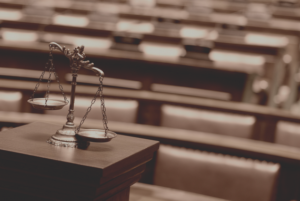 Parents that receive a Juvenile Petition from the Court alleging that their son or daughter has done something wrong will also receive a notice for what is called a “plea hearing”. As a Montgomery County juvenile lawyer , when I explain to parents what a “plea hearing” is, I first explain to them how the juvenile system differs from the adult criminal system.
Parents that receive a Juvenile Petition from the Court alleging that their son or daughter has done something wrong will also receive a notice for what is called a “plea hearing”. As a Montgomery County juvenile lawyer , when I explain to parents what a “plea hearing” is, I first explain to them how the juvenile system differs from the adult criminal system.
While the adult system uses words like “arrest”, “charged”, “guilty” and “sentencing”, this same terminology is not used in the juvenile system. The reason is that the juvenile system is geared towards helping the juvenile first, and this being the case, the Commonwealth does not want kids being exposed to the stigma and connotations that the adult criminal system carries because the courts are trying to help a child take responsibility, get them the help they may need, and help them transition into adulthood. This as opposed to looking to punish first, as this is most often the case in te adult system.
With that background, what is a “plea hearing”? Quite simply, the hearing is where the juvenile goes before the judge and either “admits” to the set of facts alleged in the juvenile petition filed against them, or they “deny” those same facts. It is the adult equivalent of pleading “guilty” or “not guilty”. Simple as that. “Admission” or “denial”: those are the juvenile’s two choices.
The juvenile is represented by an attorney at this stage of the proceedings and it is often a forum for the juvenile’s lawyer to talk to the district attorney about a possible disposition of the entire case. Given the different structure of the juvenile system, it is important that if a child is charged with a crime, their family contact an experienced Pennsylvania Juvenile Lawyer to help them navigate through what can seem like a strange and overwhelming new world.

